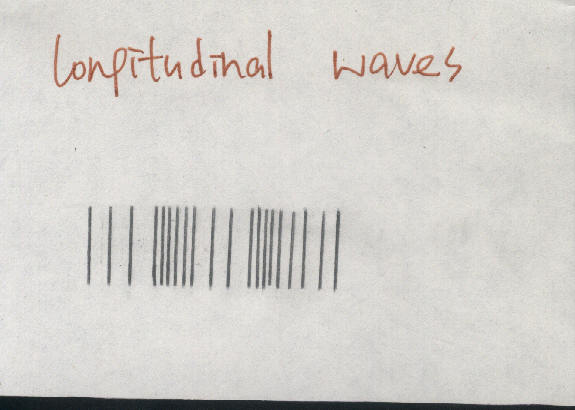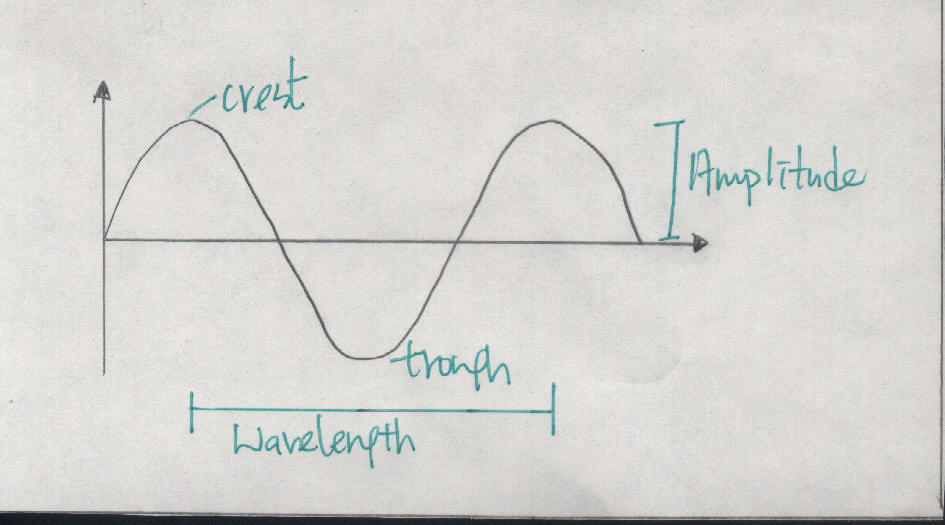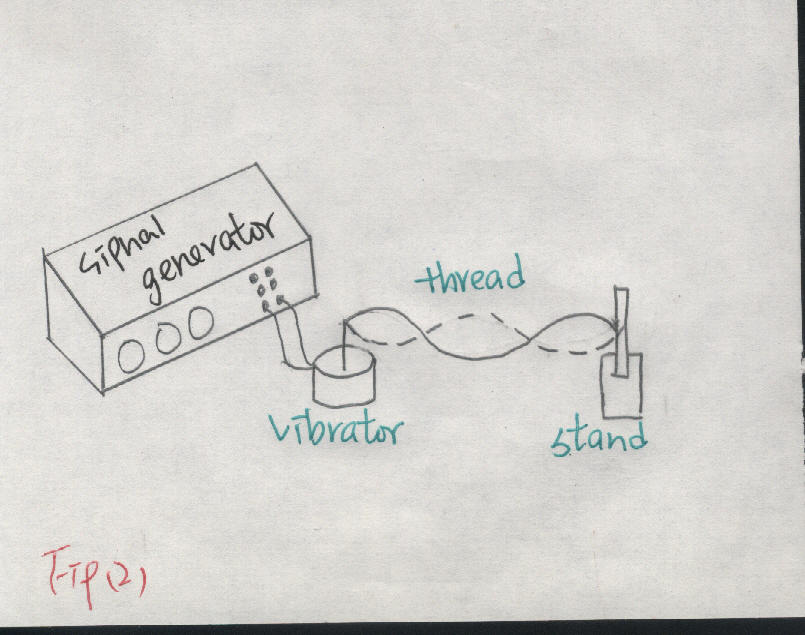

When a medium is disturbed , a pulse is often produced. Since two pulses along a slinky spring. The two pulses travel with the same velocity ,no matter how quickly they are sent out . In contrast , the distance between the two pulses decreases when they are sent out quickly. Send pulses continuously along the spring. A wave is produce.
Since the wave travel along the medium, they are traveling wave. The coils of the spring move up and down as the wave propagates. The wave is called transverse wave. The coils of spring move to and fro along the spring. The wave is called a longitudinal wave.



When we learn wave , we must know what is AMPLITUDE , WAVE VELOCITY
, FREQUENCY , WAVE LENGTH and PERIOD.
Suppose a source is sending out (f) pulses each second . We call (f) the Frequency of the wave. The unit of frequency is Hertz . (Hz)
Period (T) is the time taken for oscillation.
During this interval , pulses (P) has traveled a distance of velocity *period .Since this is the distance between two neighboring pulses , it is called the wavelength .
Crest and Trough
We may call a point of maximum positive displacement a Crest .A point of maximum negative displacement a Trough


Adjust the frequency of the signal generator to obtain a waveform as shown in Fig(2) . the wave is called a transverse stationary wave.




As seem from Fig(1) points A , B do not vibrate , they have zero amplitude. They are called Node.
In contrast , points C D E vibrate with a maximum amplitude . they are called Antinodes.
Example of stationary wave : When the string of a guitar is plucked , a stationary wave is set up.

Water Wave
Circular and Straight wave
* Water wave are transverse waves . They can be curved or straight depending on shape of vibrator.
* Circular waves propagate in all directions , straight waves propagate only in one direction on the water.
* all point on a wave front are in phase.

* Light waves are electromagnetic wave.
* Light waves can travel in vacuum.
*Color of light is determined by frequency.

Electromagnetic waves are generated when electric charges vibrate or accelerate .There are lines of electric force associated with a charge .A line of force is rather like a string. When the charge vibrates up and down , it sets up a transverse wave propagating along the line of force . This is an electromagnetic wave.
The whole range of Electromagnetic wave forms the electromagnetic spectrum . The spectrum extends from a frequency of several kHz to twenty power 10 Hz.
